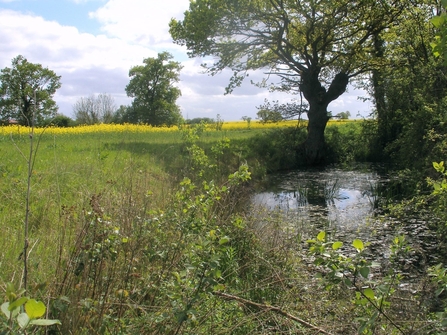In modern farming systems, the pond has all too often become overlooked, with most of Suffolk’s 22,000 farmland ponds today being neglected, overgrown with trees, or filled in and lost.
They support a huge variety of life, from aquatic insects and plants, frogs and newts, grass snakes and birds. They are a magnet for wildlife, providing life-giving water and providing homes for many species.
To change the fortunes of farmland ponds in Suffolk, building on much existing work with pond owners, Suffolk Wildlife Trust is working with partners including University College London, RSPB, Norfolk Ponds Project, Natural England, Suffolk Naturalist's Society and Suffolk Biodiversity Information Service to form the Suffolk Ponds Group.
This collaborative group will focus its efforts on securing pond restorations, further understanding the state of ponds in Suffolk and informing those looking after them of their importance in the landscape. This work will help us to continue to improve a nature recovery network for Suffolk and halt the degradation of farmland ponds and their associated biodiversity.

